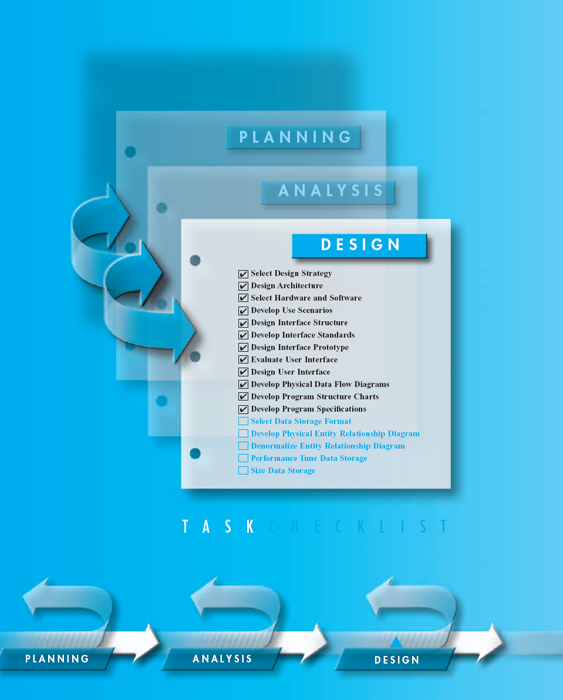
CHAPTER 11
DATA STORAGE DESIGN
Another important activity of the design phase is designing the data storage component of the system. This chapter describes the activities that are performed when developing the data storage design. First, the different ways in which data can be stored are described. Several important characteristics that should be considered when selecting the data storage format are discussed. The process of revising the logical data model into the physical data model is then outlined. Because one of the most popular data storage formats today is the relational database, optimization of relational databases from both storage and access perspectives is also included.
OBJECTIVES
- Become familiar with several file and database formats.
- Understand several goals of data storage.
- Be able to revise a logical ERD into a physical ERD.
- Be able to optimize a relational database for data storage and data access.
- Become familiar with indexes.
- Be able to estimate the size of a database.
CHAPTER OUTLINE
Introduction
Data Storage Formats
Files
Databases
Selecting a Storage Format
Applying the Concepts at Tune Source
Moving from Logical to Physical Data
Models
The Physical Entity Relationship
Diagram
Revisiting the CRUD Matrix
Applying the Concepts at Tune Source
Optimizing Data Storage
Optimizing Storage Efficiency
Optimizing Access Speed
Estimating Storage Size
Applying the Concepts ...
Get Systems Analysis and Design, 4th Edition now with the O’Reilly learning platform.
O’Reilly members experience books, live events, courses curated by job role, and more from O’Reilly and nearly 200 top publishers.

